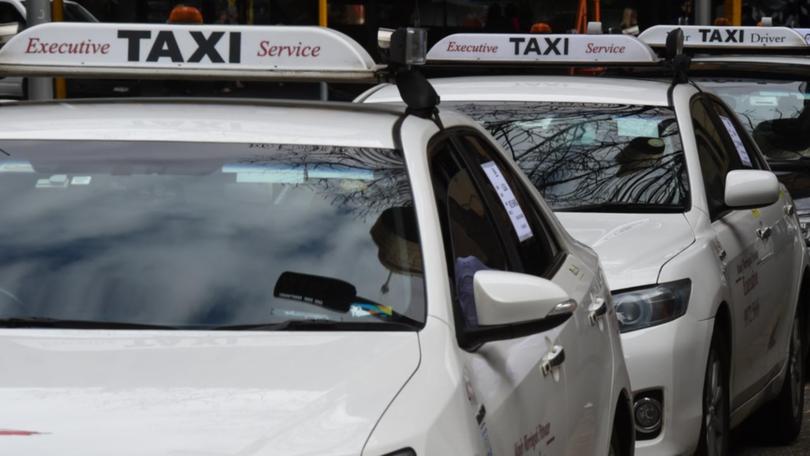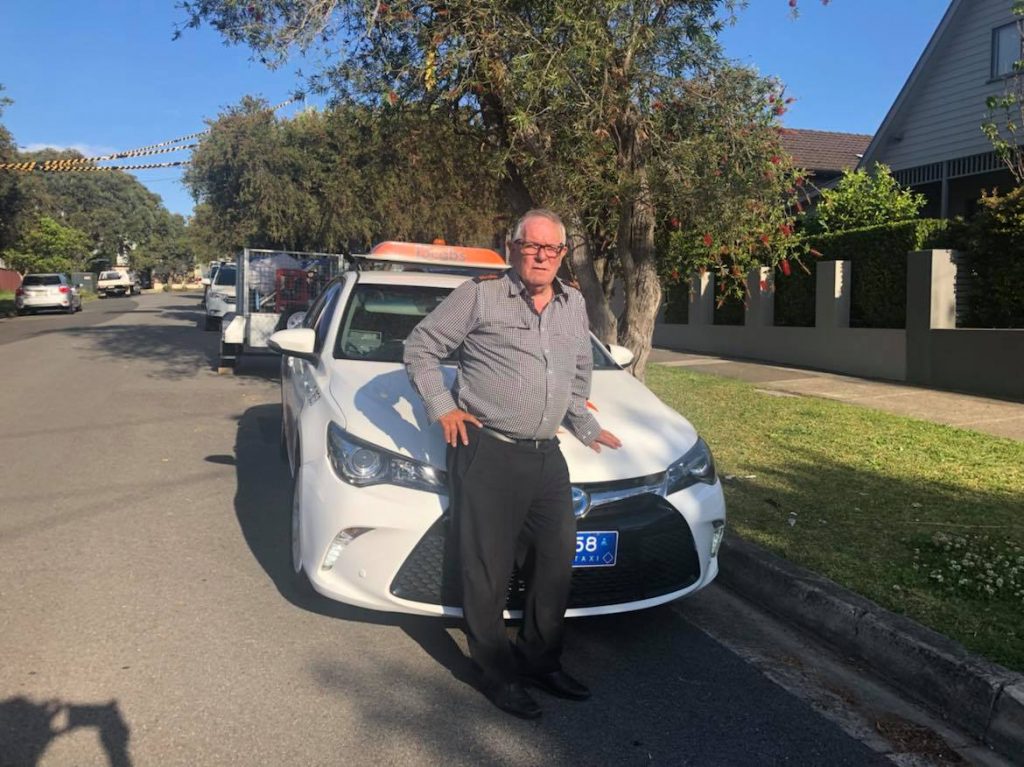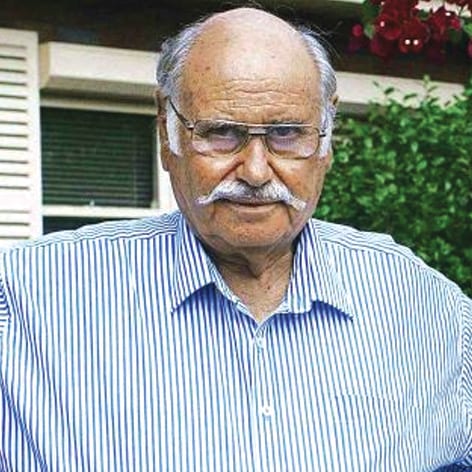In the days that followed The Greek Herald’s article on the new taxi licence plate reforms announced by the NSW Government recently, we were contacted by many other members of Sydney’s Greek community who wanted to express their anger and disappointment.
As reported, Transport for NSW held a number of webinars with taxi licence owners in September this year where they announced the new reforms. These included, but were not limited to, removing the limit on the number of taxi licences and removing restrictions on areas where taxis can operate.
According to the CEO of the NSW Taxi Council, Martin Rogers, this means that “if you own a taxi licence, once the reforms come through, they’ll be gone. What you would then need to do to even operate a taxi is apply for an annual licence for one year through the Point to Point Transport Commission for about $200 a year.”
Mr Rogers then explained how during the webinar, Transport for NSW gave an “inappropriate example” of how taxi licence owners could potentially be compensated for this cancellation. They said owners could be given $50,000 for each licence, but it will be capped at two licences. Anything over that will not be compensated, amounting in huge losses for many Greeks who initially paid around $400,000 for a licence.

‘It’s ruined us’:
One person who heard all about this proposal through our article was 64-year-old Maria Athanasakos.
Back in 2003, Ms Athanasakos and her husband decided to sell a house they owned and invested in two taxi licences “because they were supposed to be government-run and secure for our future.” They paid $294,000 for one licence and $295,000 for the second.
Ms Athanasakos was happy with the investment until 2015 when rideshare services such as Uber came onto the scene and the NSW Government de-regulated the booked market.
“It’s ruined us financially and mentally. It’s not fair,” she tells The Greek Herald.
“There’s no more income from the taxi. We get $60 a month. That’s ridiculous and now they want us to hand the plates back for $50,000 and then if we want to continue, we have to pay them. That’s not fair, that’s criminal.”
Ms Athanasakos says the situation needs to be rectified with appropriate compensation.

“I think to me a fair compensation would be to at least [get] what we paid for [the licence]. Back in 2015, they were worth $400,000 plus, but I’m willing to lose that and take what I paid for,” she says.
Luckily, the Sydney local isn’t alone in her fight for compensation.
75-year-old Manos has been a taxi licence owner since 1971, with about six licences. He is also ‘very angry’ at the way the NSW Government handled the introduction of rideshare services back in 2015 and is now joining the chorus of Greek voices against the proposed new taxi licence reforms.
“I bought the licences through the years just to have a good retirement but now, unfortunately, they are worth nothing and I can’t get by with what I’m getting,” Manos says.
“There’s about 4,000, I think, owners that have to be compensated. Some people own one [licence], some own 18 or 20 and they say they will only compensate two plates. If you have six or ten, you get compensated on two plates. That’s ridiculous. What happens to the other plates? Did we steal them? We had to finance our homes to get this money.”
Arthur Papapetros, 79, relates with Manos’ frustrations.

Mr Papapetros owns two taxi licences and paid roughly $380,000 for each. He tells The Greek Herald they are now worthless and he’s worried he will lose everything if the reforms are passed.
“I’ve been in Australia for 50 years. I came with my wife. We worked hard… and then decided to buy into taxis. In those years, the taxis were very good but now we’ve lost all our money. We can’t even get the pension,” Mr Papapetros, who still drives taxis, says.
“The way things are now I don’t know what will happen.”
Pressure mounts on the NSW Government:
Kyriakos Koliadis has been campaigning for years for these people to receive adequate compensation.
Mr Koliadis has not only worked closely with the taxi industry to pressure the government about the proposed reforms, but he has also been personally impacted as he owns three taxi licences.
“From the moment the NSW Government gave the green light for foreign businesses to work in the taxi industry without a licence, slowly, slowly, those of us who have taxi licences have been destroyed,” Mr Koliadis tells The Greek Herald.
“It’s a big embarrassment for the NSW Government because they have classified us not as second-class citizens but as third-class citizens.”
In response, Mr Koliadis says he wrote a letter on October 8 to both the new NSW Premier, Dominic Perrottet, and the NSW Minister for Transport and Roads, Robert Stokes MP, and expressed his frustrations. He is yet to receive a reply.

But that’s not to say there hasn’t been any progress at all.
According to Mr Rogers from the NSW Taxi Council, they held a meeting with the NSW Deputy Premier and Minister for Regional Transport and Roads, Paul Toole MP, on Thursday, October 21, and explained their concerns about the proposed reforms.
“We highlighted the need for appropriate compensation for the loss of value in taxi licences since 2015 and the two cap limit used in the webinar example to be scrapped. We also raised concerns about the impact on regional areas with unlimited licences and the removal of operating areas, which could result in loss of service,” Mr Rogers explained.
“We reiterated that back to the Deputy Premier and the need to actually address this before any reforms or bill is presented to Parliament. He listened to our concerns and it’s now imperative the NSW Government work together with industry to address them.
“We have also requested an urgent meeting with the Minister for Transport and Roads, Rob Stokes, to further highlight these concerns.”
‘There will be further compensation’:
In a comment from a Transport for NSW spokesperson to The Greek Herald, they said:
“Currently, taxis have some limitations in their ability to put on new or additional vehicles to compete with other operators such as rideshare, which do not face these constraints.
The proposed reforms, which include removing the limit on the number of taxi licences available, will address this imbalance by making taxi licences available on application and therefore creating a more even playing field, enabling taxis to better compete with other services.
Taxi service providers will have more choice and flexibility about how they respond to market changes – either by putting on more taxis, expanding their fleets to include hire vehicles, specialising in rank and hail services only, or providing other niche services.
There will be further compensation for impacted licence holders. Throughout September 2021, Transport for NSW consulted with taxi licence owners and others connected to the point to point transport industry on the design of the financial assistance scheme, in addition to over $145 million already paid to the industry, and the transition to new arrangements.
Our focus, like it has always been, is to support and guide industry, particularly those most affected, through this transition.”
Only time will tell what the final outcome of these new taxi licence reforms will be but The Greek Herald will continue to advocate for Greek community members who stand to be impacted. If you have a similar issue, you can call us on: 9566 0500 or email: info@foreignlanguage.com.au.
If you have been affected, you can also make a complaint via this email: pointtopoint@transport.nsw.gov.au.

